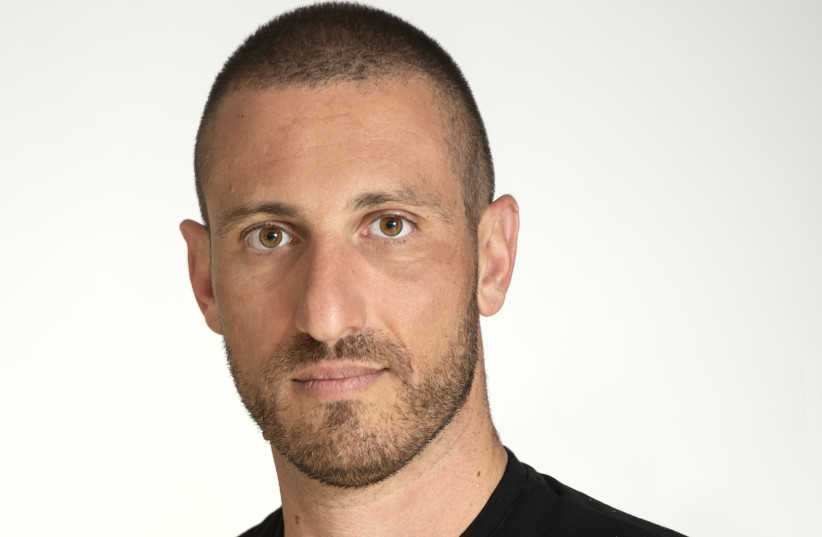Upon opening the door to the offices of Huuuge, a casual casino mobile game developer, my entire scope of vision was saturated with LGBTQ Pride regalia. A string of small flags was draped over every square foot of the lobby, along with Pride colors poking out from shelves, desks and kitchenettes throughout the workspace. This was not a company taking Pride month lightly.
Earlier this month, Tel Avivians celebrated LGBTQ+ Pride with a march through the city’s streets – the very same streets that house a majority of the country’s illustrious hi-tech sector. As of June 1, hundreds of Israeli tech companies have decked out their offices in full Pride colors – but some companies, like Huuuge, have gone the extra mile, capitalizing on the opportunity to enrich the culture of their workplaces.
“We’re having three webinars with presenters from different parts of the world that will be available to our entire employee base, so that we can all educate ourselves and find ways that we can be better allies and co-workers and create a more diverse working environment,” said Yehoshua Gurtler, Huuuge’s general counsel and company secretary.
Given his experience as a gay man working within the industry for 12 years, Gurtler was also given the responsibility for diversity, equity and inclusion (DEI) at Huuuge – a job he takes very seriously.
In a phone call at what many hi-tech workers would call “early in the morning” (and what others would call “9:30 a.m.”), he explained to me the extent to which Huuuge has gone to promote that sense of diversity at work. “Here in Tel Aviv it’s no surprise that we’re probably taking it a little bit over the top,” he said.

Huuuge Pride activities
The company’s scheduled Pride activities include a rooftop Pride breakfast, a stand-up comedy drag show, and, “perhaps most importantly,” he noted, a training course for all managing staff on how to be a more diversity-conscious manager and employer.
GURTLER ELABORATED on why that kind of training is important to Huuuge: “There are LGBTQ+ people everywhere, in all walks of society and all ages. But many of them are either in the closet or are still struggling with feeling comfortable about their identity. They’re not sure whether coming out at work is something that’s going to be disadvantageous for them,” he said.
“So part of what we’re training our managers to do is to be conscious of that, and be inclusive in the way they treat all employees,” the DEI manager said. “To create a [welcoming] working environment from the recruitment level, through the interview stage through the onboarding of new workers – and then, of course, in the routine working environment.”
Also emphasized are small-but-meaningful things like using inclusive language and addressing workers by their preferred pronouns.
“We're really putting an emphasis on celebrating this month, but also on education and advocacy and building ourselves as a stronger and more diverse organization.”
Yehoshua Gurtler
“We’re really putting an emphasis on celebrating this month, but also on education and advocacy and building ourselves as a stronger and more diverse organization,” Gurtler said.
The 41-year-old recounted the progress toward LGBTQ+ awareness and inclusivity that he’s seen during his career. “Maybe six or seven years ago, I went for a meeting with a client at their offices. It was June, and they had a little pride flag at the receptionist’s desk,” he recalled.
“I remember seeing that at a workplace and saying, ‘Oh my God, this is so moving and exciting!’ he said. “And then, you know, six or seven years later, our office is decked out top to bottom with pride paraphernalia. Not to mention the fact that, for the first time, I’ve seen the trans flag represented in our office decoration. Even just through that small personal example, we’ve come a really long way.”
The trans community’s under-representation is a point that Gurtler feels should be actively addressed by Israel’s tech community. At present it poses a major “recruitment challenge,” as he puts it, but with proper education and effort, trans people could experience the same feeling of inclusivity that he has.
“For us in tech, I think our challenge is to be more inclusive towards trans people,” he said. “For cisgender folk [those identifying with their gender at birth], lesbians, gays and bisexuals, things have improved dramatically in the last 10-15 years. But the trans community is still underrepresented and isn’t enjoying that same level of tolerance and inclusion as we are. I think that’s something that we need to be mindful of – and hopefully, in the next six or seven years, we’ll have made some real improvements.”
